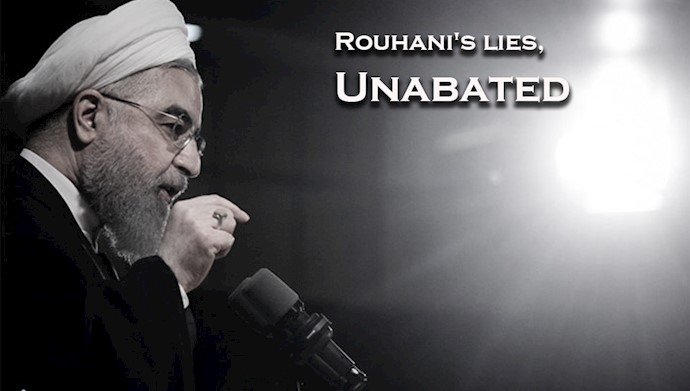Analysis by PMOI/MEK
Nov. 20, 2018 – Over the past few months, every time Iranian regime president Hassan Rouhani was in the spotlight, he talked about a prospering economy that would become even better. He also specifically declared the new sanctions against his regime as having no impact.
In his most recent statements in a government cabinet session on November 14, Rouhani said: “The regime is more stable than ever before.”
“After the U.S. sanctions, people are more optimistic. People may have complaints about the regime, that’s no problem, they should speak out their complaints and criticism loud and clear.”
Let’s forget about the fully equipped riot police that was sent to Iran’s Haft Tapeh just a few days ago to intimidate, brutalize, and jail the sugar factory workers who were outraged and were asking for their unpaid wages, their most basic right.
The picture that Rouhani paints of the Iranian economy is so detached from the hard truth that even supporters and leaders of his own faction speak out against it.
Hossein Kamali, former labor minister and a supporter of the so-called moderates, said: “I once told the president that we suffer from losing the trust in us. Trust is the greatest social asset. Our officials have talked but acted differently.”
According to a Keyhan newspaper report on November 16, Hossein Kamali acknowledged the widespread discontent among the Iranian people about the regime and described the next Iranian revolution without particularly mentioning it: “Where else in the world [do you witness that] when problems and issues occur, and protests happen, it targets the ideologic foundations of the country. Why do our officials allow the problems and issues to be blamed on Islam, the regime and the leadership [meaning specifically the Supreme Leader Ali Khamenei]?”
While Rouhani and his minions try to show a stable currency and gold market as proof for the ineffectiveness of the sanctions, Arman newspaper, also close to the so-called moderate faction, exposes their game plan and writes: “Some analysts believe that at the time when [U.S. President Donald] Trump threatened to leave the JCPOA, the government implemented measures to pave the way for an increase in currency and gold prices [writer’s emphasis]. The goal was to spread the negative news before sanctions were implemented to create a bubble in the market so that prices become even higher than the sanctions can make them and the government [subsequently] by bursting this bubble after the sanctions show that the Iranian economy is not dependent on other nations.”
Majid Hariri, a government official in the Iranian trade chamber also considers the reasons behind the increase or decrease of currency values the result of “oscillations in political issues” and says: “Economic factors don’t have much of an impact here.”
Another newspaper close to Rouhani’s faction, Jahan-e Sanat, reiterates the government’s role in playing with prices and warns about its consequences: “It’s always the government’s political play that has the last say and the economy always surrenders to the country’s politicians’ desires. Therefore, controlling the currency value isn’t an inspiring policy and can even be a sign of the country’s damaged economic climate.”
In contrast to Rouhani’s and his first vice president, Eshaq Jahangiri’s, claims, the newspaper further writes: “All of the steep oscillations of value in the markets indicate policies that defend the government’s interests and the economy had never a share of these governmental policies.
Mohammadqoli Yousefi, an economist close to Rouhani’s faction, sums it up and says: “There is neither a sign of economic stability in the country nor a movement to relieve the international tensions. Therefore, the government, in tandem with the instability in its income, faces high costs. The economic face-off with the U.S. and Europe can also be a serious challenge when it comes to providing some consumer goods which also disrupts the currency sector and import and export.”
He also challenges Rouhani’s claim that the Iranian people have become more optimistic after the sanctions kicked in and say: “Since the government’s economic policies aimed at circumventing the people… and since [the people] don’t see any benefits from the government’s economic war, they won’t be willing to share enough of the current situation and bear this much of economic hardship.”





